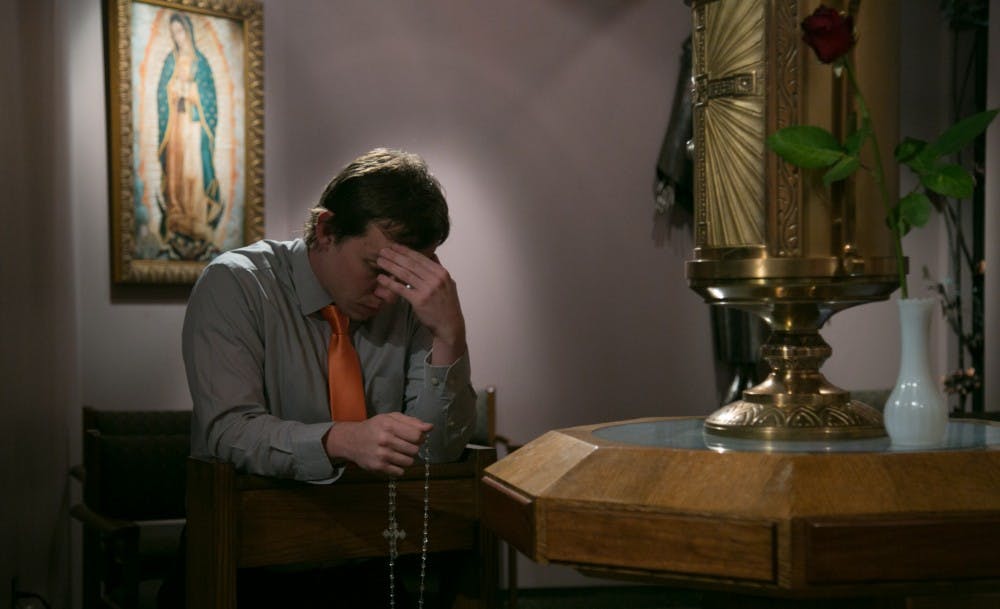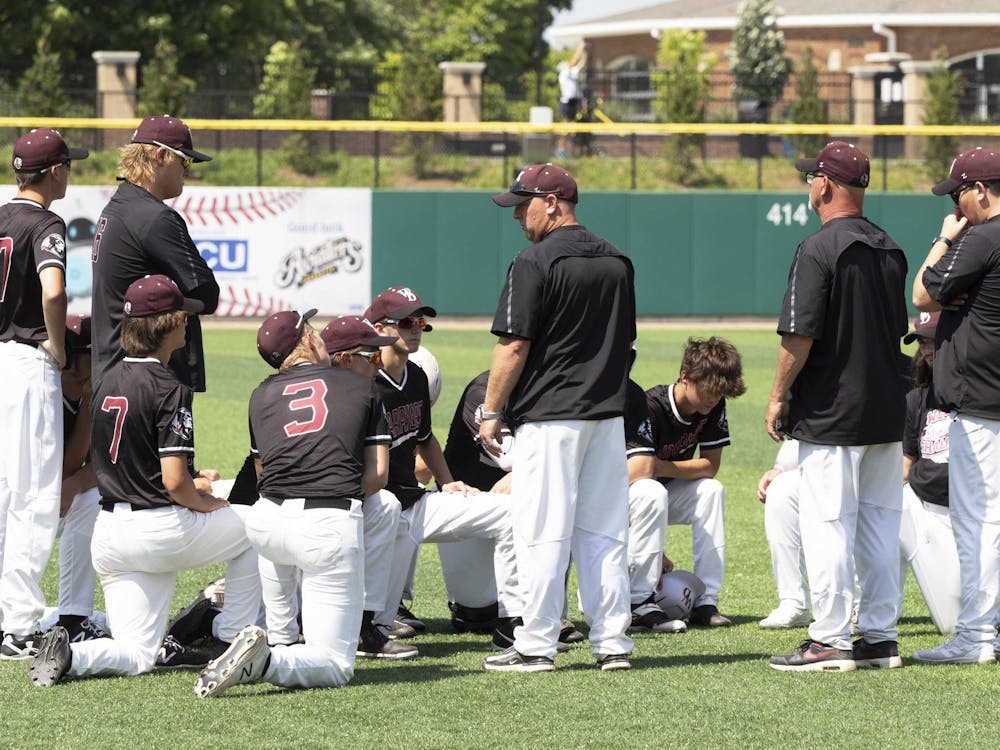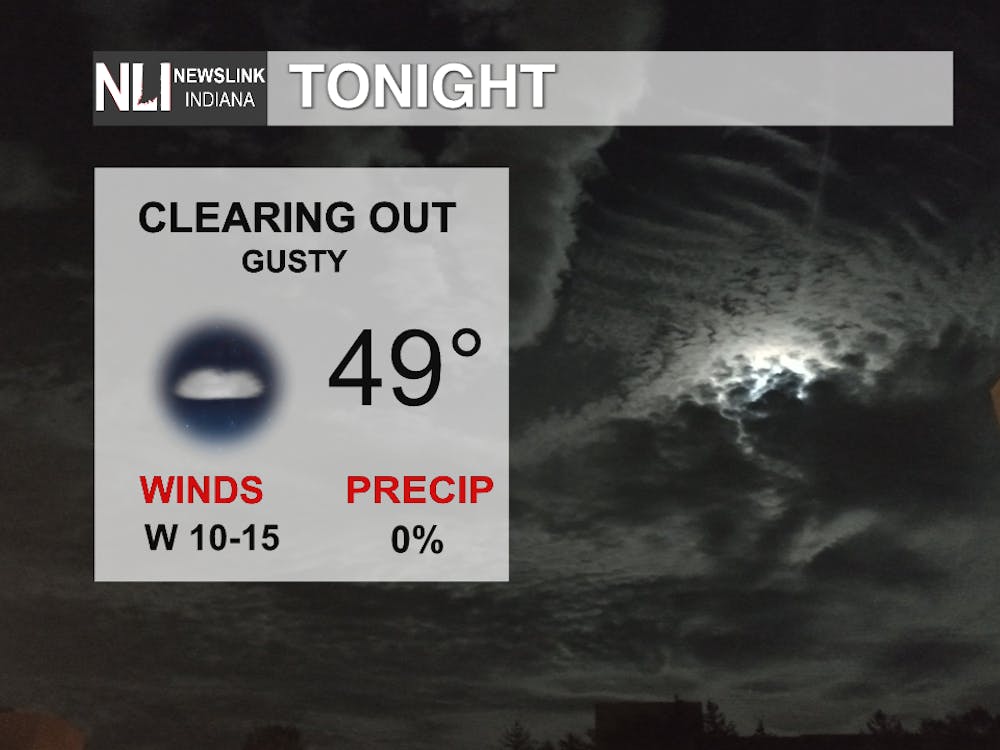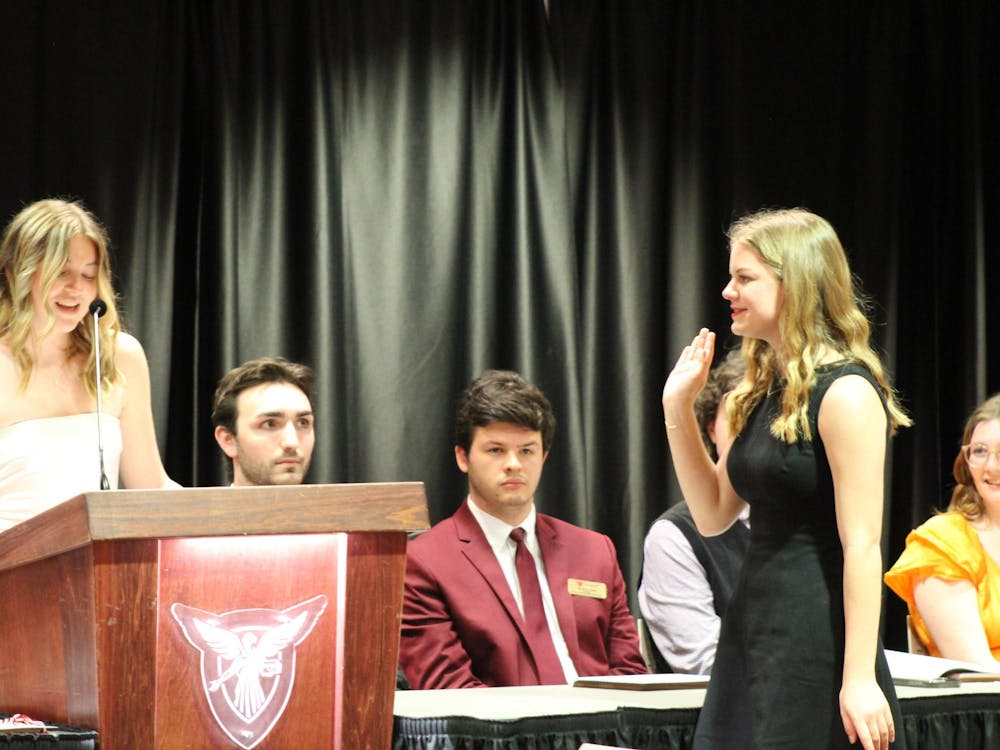Jordan is a junior political science and history major and writes "Musings from Moorman" for the Daily News. His views do not necessarily agree with those of the newspaper. Write to Jordan at jamoorman@bsu.edu.

“God does not love you, God is madly in love with you.” These were the simple words that Father Anthony, a visiting priest, spoke to the congregation. He spoke of the sacrifice, of the suffering, that Christ endured for us, each and every one of us, each and every member of humanity.
I looked to my left, an elderly woman was crying. I thought how could any form of love be more pure than a creator becoming human and allowing himself to be murdered gruesomely by his own creation. I became emotional; tears swelled in my eyes. I found my mind sailing to a place, wondering about the depth of authentic love represented by Jesus. The words of the priest pierced my mind and echoed through the church; this was the moment I realized how much I was loved.
I discovered that love is misunderstood. I discovered that the “love” many people perceive the church to possess is a mythical misconception. Of course, what people misperceive, through no fault of their own, is often different from reality. With so many distortions of love in our world, it is no wonder we tend to misunderstand it, myself included.
First, God calls everyone. Everyone. Many of you reading this will scoff, smirk, and call me naïve. Brainwashed. A boy whose beliefs were spoon fed by a religious mommy and daddy (see comments on my previous columns). That is fine. However, this doesn’t change reality.
“The Catholic Church? Welcoming to all'? Yes. "The Catechism of the Catholic Church" states, “God’s very being is love. By sending his only Son and the Spirit of Love in the fullness of time, God has revealed his innermost secret: God himself is an eternal exchange of love, Father, Son, and Holy Spirit, and he has destined us to share in that exchange." The “us” in “destined us to share in that exchange” means all of humanity.
The hot topic here at college is often God as it pertains to the LGBTQ movement. Yes, members of the LGBTQ community are part of “all of humanity.” Likewise, as a Catholic, I have been called a bigot and intolerant. I simply try to follow church teachings, and I can assure you the church is none of those things. Bigoted? I just shared with you how all of humanity is invited to share in the body of Christ.
I was always confused by the accusation of the church being intolerant. To be tolerant, one first must disagree with something. Tolerance is not compelling someone leading a sinful lifestyle to stop sinning. Intolerance would be killing people living a sinful lifestyle. Tolerance is not accepting that certain things are OK, nor is tolerance encouraging someone to continue to live in a way with which you disagree.
As far as condemnation goes, the church condemns no person. It does condemn actions, and we can infer from scripture and church teaching that certain actions can earn us a spot in hell, and that people are there, but the church does not issue condemnations. It does, however, declare actions sinful and condemn actions and heresies. People, as the church teaches, have a tendency to condemn themselves.
When the church encourages people to stop living a homosexual lifestyle, it is out of love. Christians want all souls to be with God. To say nothing would imply apathy, which is the opposite of love. In fact, the ancient Greeks had four different words for love, one of which is storge.
Storge is familial love; the brotherly or sisterly inclinations one has for people around them, and the love and gratitude for the things and blessings around them. It is compatible with hatred, but not hatred in the connotation we view it today.
Two types of hatred are loathing and hostility. Loathing is not intrinsically sinful, as it might involve hatred of sin and rejection of evil. Hostility on the other hand is hatred aimed directly at a person. This is the type of hate in which one would take joy in the suffering of the hated person. This is a grievous sin. When one says: “reject hate,” they are referring to hostility. We all loath racism, sexism, and discrimination. But I believe you will be hard pressed to find a practicing Catholic (or Christian in general) who is hostile toward any group.
Love and hate are not opposites; we want people to reject sin. We love people but hate the sin. Apathy is the opposite. If the church was not a universal Church, if it did not call everyone home, then it would risk souls forfeiting eternal life.
I do not wish to speak for all Christians, and I do not hold authority within the Catholic Church. But I do see myths and misconceptions surrounding Christianity, especially the Catholic faith.
Misconceptions of what Catholics believe is not limited to the nature of love or attitudes toward the LGBTQ community. It would be hypocritical of me, and other Christians, to point out the immoral nature of homosexuality without also pointing out sin that exists elsewhere. We all have our sins with which we struggle.
The testimony of my own friend who is a member of the LGBT community, and a Catholic, is a powerful example of the church’s acceptance.
I sat across from Kyle in the Atrium; we had talked and hung out a few times prior. He showed me his pride pin, and explained that God created him who he is. I was nervous. I had never had this conversation before. I told Kyle that I would be there for him through whatever he needed, and that he would always have a home in the church.
I carefully reminded him that I could not approve of the lifestyle associated with that identity, but my relationship with him need not change. We were still friends. He was still part of my Bible study, and we became quite close because of it.
Later on, I decided to interview Kyle. I needed to know how he felt he was treated, and how he felt about the difficult truths of the church.
I asked, “Have you ever felt intolerance or unaccepted from people in the church"? “Not in my experience,” he responded.
Later in the conversation, Kyle said, “Because it is the people that live out the doctrine, beliefs, and truths of the faith.” He questioned me, “In what way(s) do you think the church is unfair to LGBT community members"?
I responded, “Well, I don’t think the church itself is unfair. Sometimes the members are. But one must differentiate actions of members from the objective truth. The church condemns acts, not people. However, it is important to remember hell is a place.”
“Exactly,” he said. “However, most people either don’t want to/like to/have to contemplate that deeply or think that extemporaneously. Because the conclusions might cause them to change their outlook or ways they go about life; people want things simple so they do not have to work that hard to get what they want.”
“And it is definitely hard to work toward heaven,” I responded. “Absolutely,” Kyle said.
Kyle taught me something. He taught me that church teaching is difficult, and that is okay. In the words of Saint Mother Theresa of Calcutta, “a saint is a sinner who keeps trying.”
God is love. The Catholic Church is so often believed to be intolerant or contrary to the nature of God’s love. My hope is that at least, in regard to this one salient issue of sexuality, you know now at least where the church is coming from with its teaching.
Many misconceptions of the church exist, and I hope that at the very least you see that the teachings are rooted in love, even if some of them are difficult to accept. I know for me as a Catholic, there are lot of difficult teachings with which I wrestle, but it comes down to love of God and trust in his church that keeps me grounded in those teachings.
“For Christ also suffered for sins once, the righteous for the sake of the unrighteous that he might lead you to God,” according to the "New American Bible". This is the message the Catholic Church wishes to show the world. This is what it’s all about. Christ is the answer for everybody. He died for everybody, regardless of how you’re living or what you have done. Like the prodigal son’s father, Jesus is waiting for us with open arms. All discourse, all hard truths, all pushing of hot-button issues are meaningless without God in the center.





